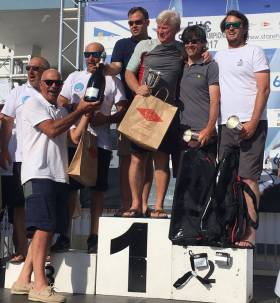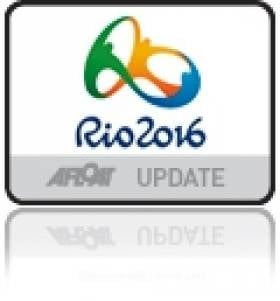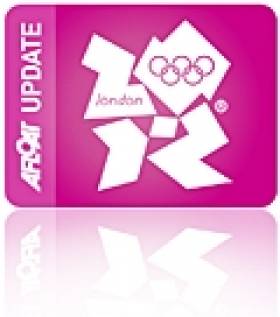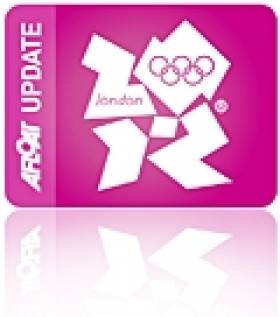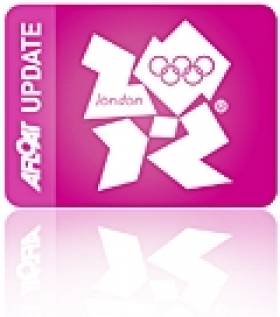Displaying items by tag: Star Class
Royal Cork Yacht Club brothers Peter and Rob O'Leary were second overall in the Star class Eastern Hemisphere Championships in Viareggio, Italy yesterday. The O'Leary's were runners–up to, Andrew MacDonald and Brad Nichol USA Diego Negri and Sergio Lambertenghi of Italy were third. Participation at the event brought double Olympian Peter O'Leary back to his days at London 2012, the last time the 22–foot keelboat sailed as an Olympic class.
70 teams from 15 countries were represented at the Tuscany event.
The next big event for the Star class is the Western Hemisphere in Cleveland, Ohio in June and the Star World Championship in Denmark in July.
O'Leary Drops to Fifth at Bacardi Cup, Miami
#bacardicup – Now fifth overall in the standings at the 2013 Bacardi Cup in Miami is Irish Olympian Peter O'Leary and Rodney Hagebols who have 13.5 points after finishes of 2.5-36-11.
Breeze just into the double digits made the second day of racing for the Cup a test of experience and persistence for the 56 Star teams racing on Biscayne Bay.
Two races were completed as the sunshine warmed temperatures into the low 70s, and, with three races scored a drop race now comes into play. While Lars Grael and Mario Lagoa (BRA) remain first overall with two points net after adding today's finishes of 12-1 to their win of yesterday's lone race, less than 12 points separate the top-five teams.
Lars Grael and Mario Lagoa (hull 74) are the standings leaders after two days of racing for the 86th BACARDI Cup
"Races were similar to yesterday although the second race overall was more gentle," said Grael. "On the first race today we did a wrong jibe and we rounded the mark fifth, closed the downwind leg 25th and finished 12th; it was a difficult race for us. Second race of the day started well, we rounded the mark first and protected the position. While fighting with Xavier Rohart we managed to keep a good gap with the rest of the field. Overall we're happy because competition is tough and we're competing against Augie Diaz who is a local sailor and I believe has the home advantage."
Diaz, with crew Arnis Baltins, is just three points out of first place and knows winning this championship will come down to more than local knowledge.
"The first race was difficult, but we managed to do well," said Diaz of the win of today's first race. "We had better opportunities and with a little bit of luck we were able to round the weather mark third and then take the lead to the end. Second race of the day was more challenging because we decided to go on the right side of the course while the wind went left; I'm therefore happy with a 10th place. I have a lot of respect for Lars because he is very good in all conditions and in all venues. I don't think I have a big edge by being local; really not as big an edge as he might think I have."
Third overall are the defending champions Xavier Rohart and Pierre Alexis Ponsot (FRA), who placed 6-2 today, a strong recovery from yesterday's finish of 25. They carry eight points and are followed in fourth by the Italian team of Diego Negri and Frithjof Kleen whose scoreline of 13-3-9 totals 12 points. Rounding out fifth in the standings is Irish Olympian Peter O'Leary and Rodney Hagebols who have 13.5 points after finishes of 2.5-36-11.
The Italian team of Diego Negri and Frithjof Kleen are fourth overall with three races scored.
Racing for the Star class resumes tomorrow, Wednesday, March 6. Starting on Thursday, March 7, the Stars will be joined on Biscayne Bay by sailors in the Viper 640, Audi Melges 20, and Melges 24 classes, along with the J/70 class which makes its event debut. Racing, for all classes, will conclude on Saturday, March 9
Sailing Determined to 'Stand on Podium' in 2012
Irish sailing bosses are determined to "stand on the podium" at the 2012 Olympic Games.
That was the message from last week's briefing by Ireland's four Olympic 'water sports' of canoeing, rowing, swimming and sailing, covered in The Irish Times.
For next summer the Irish Sailing Association has narrowed its focus on three boat classes - the Star Class, 49er and Laser Radial.
But the competition will be tough, with more than 40 countries vying for a handful of remaining Olympic spots at the Perth Sailing World Championships in December.
Other sports are more modest in their aspirations, with rowing rebuilding from the ground up with younger athletes, and Swim Ireland pushing forward with a streamlined team and plans to have six swimmers compete in London next summer.
In canoeing, Eoin Rheinisch - who placed fourth in the canoe slalom in Beijing - was on hand to discuss his qualification hopes, with two chances to clinch a spot between now and the games.
The Irish Times has more on the story HERE.
Inauspicious Start for Irish Stars
Ireland's two Star crews have struggled to make an impact in the initial stages of the Star Europeans, which started on Monday in Villareggio, Italy. A whopping 132 boats are taking part, with the entire fleet starting on one line for each race.
Peter O'Leary and David Burrows, sailing together for the first time, are the top Irish boat at present, lying in 43rd position, carrying a 44th and a 52nd in the two races so far. Max Treacy and Anthony Shanks are further back in 77th, with a scoreline including a 95th and 57th.
Racing continues today.
(PS: Bonus video below from photog Amory Ross)
Irish Star Crews Arrive in Italy
Ireland's two Star crews line up against each other next week for the first time in what will be their final configurations. Both crews take part in the Star Europeans in Villareggio, with a record entry of 149 boats, all sailing the one start line and the one course.
Max Treacy and Anthony Shanks will take to the water against Peter O'Leary and former Olympian David Burrows, who pair up for the first time in competition.
Registration and practice takes place over the weekend, with racing starting on Monday.
News, when it emerges, will feature on the OFFICIAL WEBSITE.



























